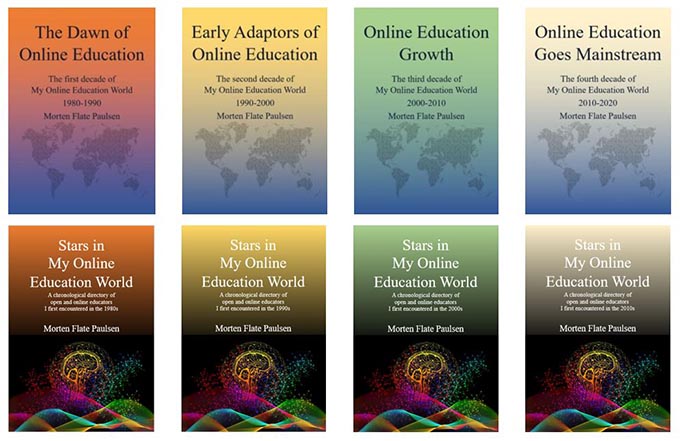
Morten Flate Paulsen, the former EDEN President and a past Keynote speaker at ICICTE, has been inducted into the International Adult and Continuing Education Hall of Fame (IACE Hall of Fame), joining an elite group of global leaders recognized for their transformative impact on adult and continuing education.
The IACE Hall of Fame honors exceptional individuals who have advanced the practice and scholarship of lifelong learning, inspiring generations of educators and learners alike. This prestigious recognition highlights significant contributions to the field, showcasing their commitment to innovation, excellence, and fostering opportunities for personal and professional growth.
At ICICTE 2025, Morten will present his eight books in a special session. This session will feature a presentation of his work followed by a discussion with delegates, offering an invaluable opportunity for reflection and dialogue on the history and evolution of online education through his eyes.
Here, in Morten Flate Paulsen's, are descriptions of the books that will be presented.
Open Access Books in My Online Education World.
The Dawn of Online Education was published in January 2024. In 1980, distance education was synonymous with correspondence courses, educational radio, and television. However, the 1980s completely transformed our perception of distance education. The major driver of this development was new technology: personal computers, modems, and learning management systems. In that decade, I started working as a hardware engineer with a keen interest in microcomputers before joining a group that established Norway's first private ICT college. There, I taught ICT courses, purchased a modem, and led the development of a learning management system for online education. In 1987, I taught my first online distance education courses and visited online education pioneers in the United States and Canada.
Early Adopters of Online Education was published in April 2024. The 1990s was a decade of remarkable innovations. It introduced personal computers with color and graphic interfaces. New Internet services opened up the world, and the web brought it all together. Search engines provided immediate access to mind-boggling information sources. Online journals, early web-based learning management systems, digital cameras, and personal digital assistants (PDAs) emerged. Mobile phones also transformed our lives. In the early 1990s, I was a doctoral student and graduate assistant at the American Center for the Study of Distance Education. There, I established Deosnews as one of the first online journals in the field. Back in Norway, I learned HTML, developed websites, designed my first web courses, and initiated the development of a web-based learning management system.
Online Education Growth will be available in the first quarter of 2025. It covers a decade with substantial growth in online education. This period introduced Wi-Fi, multimedia PCs, online bank accounts, and PayPal. Skype, Spotify, podcasts, Creative Commons, and open educational resources also emerged. Facebook, LinkedIn, Twitter, YouTube, and many other social media services became prominent. Learning Management Systems became ubiquitous in Norwegian schools and universities—systems I had to engage with as a father of three schoolchildren. As director of development for a rapidly growing online school, I participated in a dozen European R&D projects and led several innovative initiatives.
Online Education Goes Mainstream will likely be available in the second quarter of 2025. The 2010s introduced smartphones, iPads, video communication, MOOCs, electronic badges, nano-learning, learning analytics, and cloud computing. It was a decade with increased focus on online education in public universities, partly due to media coverage of MOOCs. During this time, I worked as a professor of online education in Norway and Portugal, established my own online school, became President of the European Distance and E-learning Network (EDEN), and had numerous international experiences as Secretary General for the International Council for Open and Distance Education (ICDE).
During the writing process, I realized that I have learned from many brilliant people worldwide. To honor them, I began developing four chronological directories of Stars in My Online Education World. These directories unfold as a narrative showing how 160 individuals influenced my professional growth and shaped the various stages of my work in online education. Readers may look up individual stars of special interest, read it as a developing narrative of prominent people in the field, or use it as a supplement to My Online Education World.



